Muslims are not alone in being hounded in India

There's no denying that India's Muslims are a major target in the culture of hate being fomented across the country. It's equally true, however, that Muslims are not alone in being hunted and hounded by an increasingly wilful right-wing state.
Let's not ignore too the virtual absence of Muslims from struggles in India on issues that may not seem to involve them as a community per se, but in a wider shared sense of the fight for democracy do.
Seldom – if ever – has one seen the community taking to the streets on issues of education and health, or even jobs for their people or other Indians. There's an invisible obstacle, as it were, to a full-throated participation like, for example, the time when a controversial citizenship law is being imposed on the community or when majoritarian groups make offensive remarks about their religion. Let's see what so many non-Muslim activists are doing for the Muslims and for the country as a whole, of which the Muslims are such a large, if grudging, part. Is there a way to cut loose from the self-limiting worldview?
Let's begin with July 5, which marks a year since Father Stan Swamy died in a Mumbai prison.
Millions had celebrated the 84-year-old Jesuit priest as a selfless worker for the Dalit and tribal people of Jharkhand, and also for his commitment to the constitution's secular, democratic and socialist objectives.
Then one day Swamy became the oldest member of a clutch of renowned public intellectuals who were thrown into prison under reason-defying anti-terror laws. Swamy died of Covid-related complications, a scourge his younger colleagues in prison somehow survived.
A gentleman to the core, Swamy knew he was innocent, though the charges did not surprise him. "What is happening to me is not something unique or happening to me alone; it is a broader process taking place all over the country. We all are aware how prominent intellectuals, lawyers, writers, poets, activists, student leaders are all put in jail because they have expressed their dissent or raised questions about the ruling powers of India," he told an interviewer.
In his meticulous fight for justice, one of Swamy's several campaigns sought the implementation of a Supreme Court order that said, "Owner of the land is also the owner of sub-soil minerals." It naturally made him highly unpopular with the mining barons who control the state's economy.
Christophe Jaffrelot, in his book Modi's India: Hindu Nationalism and the Rise of Ethnic Democracy, discusses in detail the Bhima Koregaon case in which Swamy and some of India's most selfless rights activists stand targeted as "urban Naxals."
"The way the urban Naxals have been harassed and arrested in India before and after 2019 suggests that police forces reporting to BJP ministers have emulated the Hindu nationalist vigilantes to some extent, and appear to be translating into action the increasingly authoritarian strategy of the government, a trend that also manifested in the decline of freedom of expression…," says Jaffrelot.

Many eyebrows were raised recently when the Supreme Court gave a clean chit to Prime Minister Narendra Modi in cases pertaining to anti-Muslim pogroms during his tenure as the chief minister of Gujarat. What caused greater consternation was the court's censure of the petitioners and an unusual order that those who pursued the case for over 16 years be put in the dock.
Consequently, rights activist Teesta Setalvad and two former top cops were slapped with charges and jailed. All three have stood shoulder to shoulder with the Muslim victims of the pogroms. But the debate over the shocking judgment hasn't significantly enthused major Muslim groups – barring some individual responses – that seem to confine their interest to religious disputes.
The Indian state has acquired additional features of a police state under the post-2019 BJP-led government. Immediately after Modi II was formed, recalls Jaffrelot, Indian parliament passed a law that empowered the state to designate individuals as terrorists. Previously, that was the case only for organisations.
Among those arrested were Surendra Gadling, a lawyer, Shoma Sen, a retired English professor, Sudhir Dhawale, a poet and publisher, while Mahesh Raut and Rona Wilson were human rights activists. Soon, the police arrested, in the same case, the poet-activist Varavara Rao, the lawyer and trade unionist Sudha Bharadwaj, who gave up her US citizenship to join the Indian struggle, and the human rights activists-turned-authors and columnists Arun Ferreira and Vernon Gonsalves.
In April 2020, Anand Teltumbde, a regular contributor to the Economic and Political Weekly, and professor at the Goa Institute of Management, was arrested followed by Gautam Navlakha, former consultant with the Economic and Political Weekly and a member of the People's Union for Democratic Rights. Then Hany Babu, associate professor at Delhi University, was arrested as "co-conspirator" for propagating Maoist ideology. Finally, the Jesuit priest was thrown in jail.
They were all accused of conspiracy to overthrow the government and assassinate the prime minister. The Amnesty Tech (Amnesty International digital security team) later discovered that one of the seized computers contained malware allowing remote access, through which incriminating letters could have been planted. The idea that the letters had been manufactured was supported by the fact that Naxals' communication is heavily coded, says Jaffrelot.
Eminent historian Romila Thapar and other scholars filed a petition against the targeting of intellectuals, but lost the appeal. The dissenting judge, Justice DY Chandrachud, observed "that a clear-cut distinction has to be made between opposition to the government and attempts to overthrow the government by rising up in arms." For him, the Bhima Koregaon case was "an attempt by the state to muzzle dissent… Each of them is prosecuted for being a defender of persons subjected to human rights violations." Justice Chandrachud is expected to become chief justice in November 2022.
This article was first published in Dawn, an ANN partner of The Daily Star, on July 5, 2022.
Jawed Naqvi is a New Delhi correspondent of Dawn.

 For all latest news, follow The Daily Star's Google News channel.
For all latest news, follow The Daily Star's Google News channel. 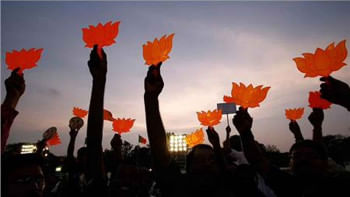
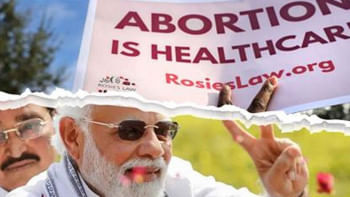



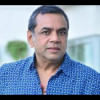

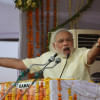
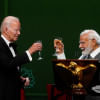


Comments